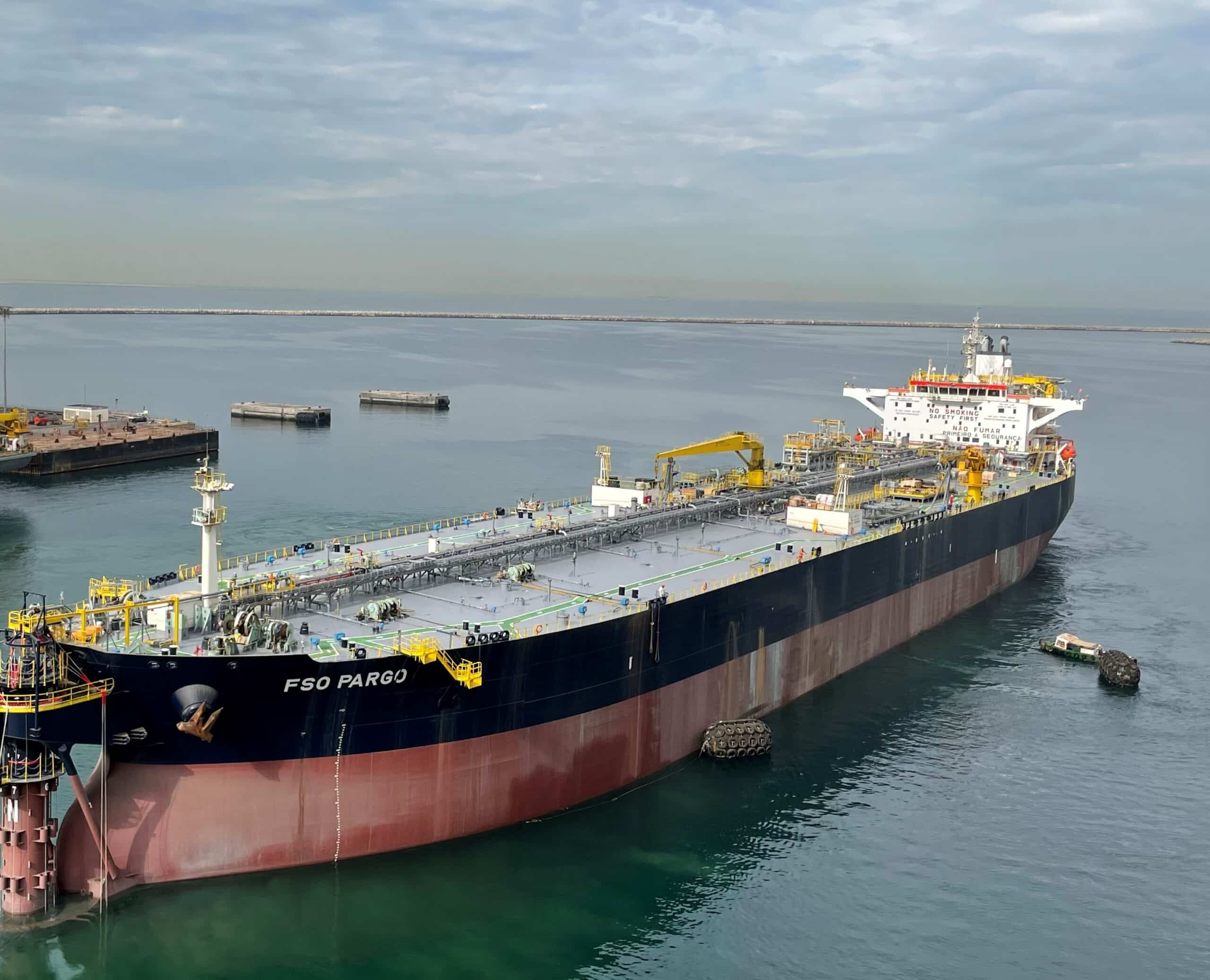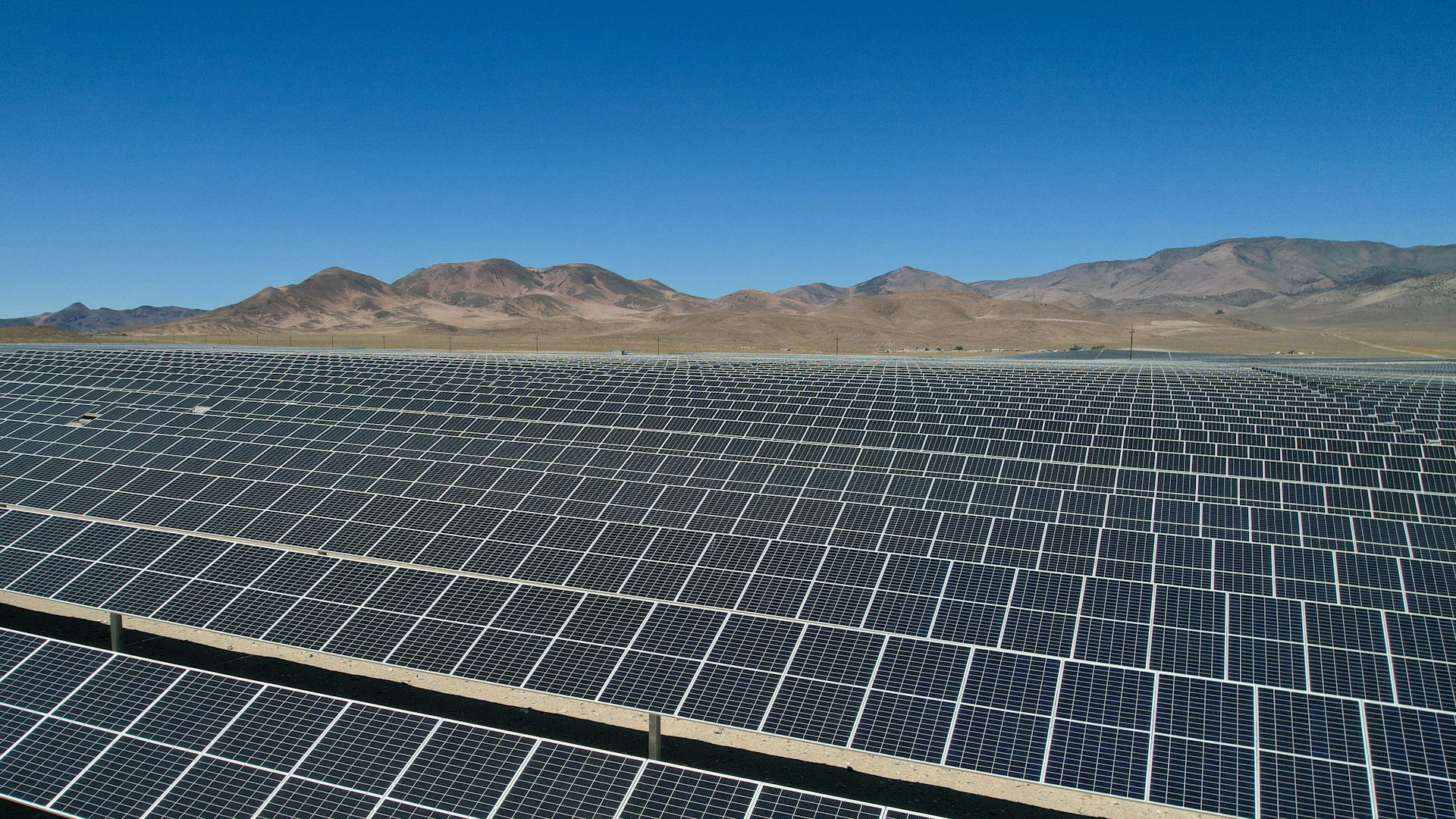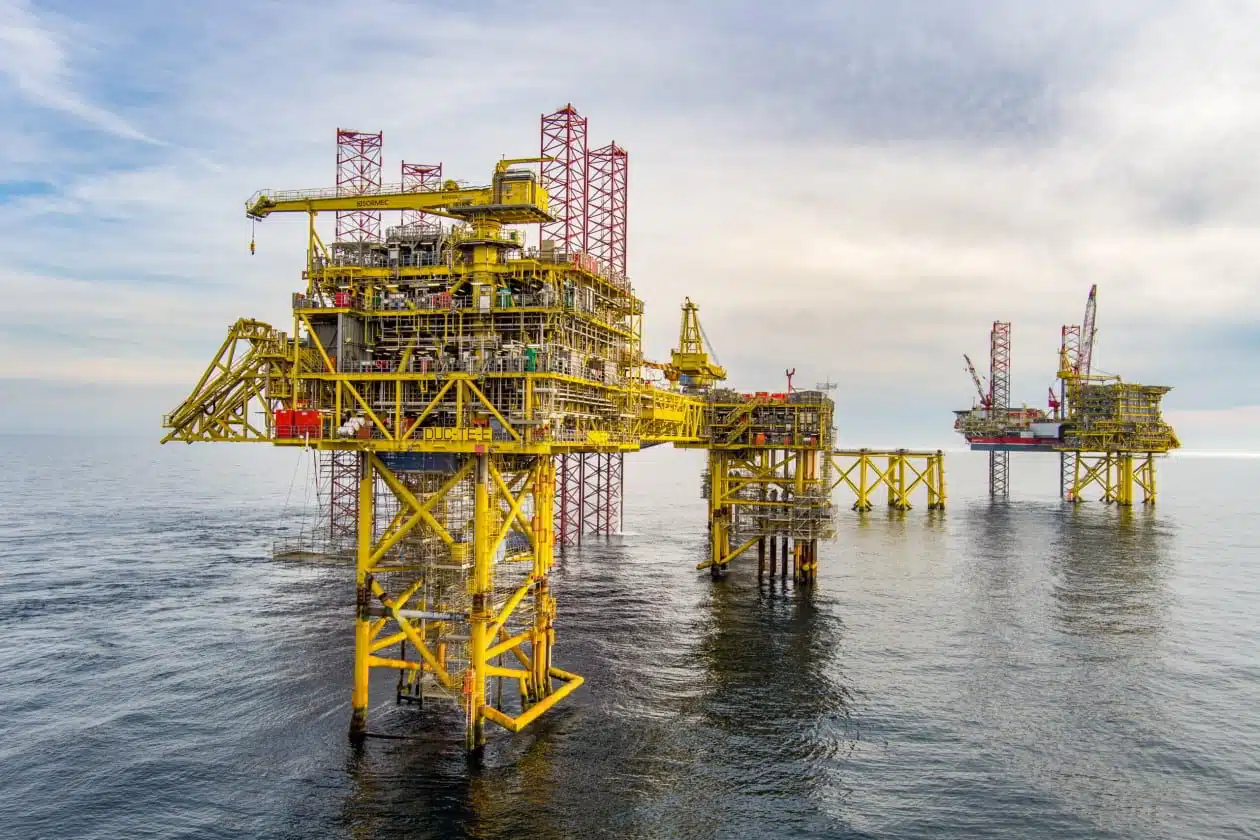Africa’s most populous nation, Nigeria, has commissioned its first wholly owned Floating Storage and Offloading (FSO) vessel near the Bonny export terminal, with capacity to hold more than 2 million barrels of crude oil.
One of the companies behind the project disclosed this on Wednesday in a statement reported by Reuters.
According to the firm, the infrastructure was developed to support crude oil exports from the Bonny terminal in the oil-rich Niger Delta, Rivers State.
The FSO, with a capacity of 2.2 million barrels, is expected to boost transportation and production from Oil Mining Lease 18 (OML 18) and nearby assets in the Eastern Niger Delta.
It will also reduce dependence on pipelines and help curb risks linked to oil theft and vandalism, the company added.
The vessel, named FSO Cawthorne, was developed by Nigerian National Petroleum Company Ltd (NNPCL), which holds 55% in OML 18, along with Sahara Group, Eroton Exploration & Production, and Bilton Energy.
Sahara Energy said in a statement that the FSO is stationed offshore Bonny, the export hub for Nigeria’s Bonny Light crude.
Tosin Etomi, Head of Commercial and Planning at Asharami Energy, a Sahara Group company, explained that the vessel will cut carbon exposure from barge movements and improve evacuation safety.
The double-hull vessel was converted from a Very Large Crude Carrier.
It is designed to receive, store, and offload crude oil to export tankers.
The FSO will address long-standing logistical challenges such as limited barge capacity, siltation at berthing slots, and delays in ship-to-ship transfers.
It is also expected to support OML 18’s 2025 production target of 50,000 barrels per day.
Nigeria’s oil production drive
As Africa’s top oil producer, Nigeria has been working to boost output. In the first half of 2025, production averaged over 1.68 million barrels per day.
The rebound has been supported by renewed investment from international oil companies and local independents, as well as a crackdown on oil theft led by NNPCL.
The upstream regulator, NUPRC, recently reported that oil theft has dropped sharply—from a peak of 2.5 million barrels per day lost, to about 9,600 barrels daily.
In June, the agency announced plans to launch a real-time tracking system for crude oil exports. The system is aimed at curbing theft and increasing government revenue.
Most theft has historically been linked to pipeline vandalism, spillage, and sabotage by non-state actors.
During a meeting with the president, NNPCL’s Group Chief Executive, Bashir Ojulari, said the government has set a production target of 2 million barrels per day by year-end.
The increase will be driven by new exploration, more rigs, and additional floating facilities such as the FSO recently commissioned









